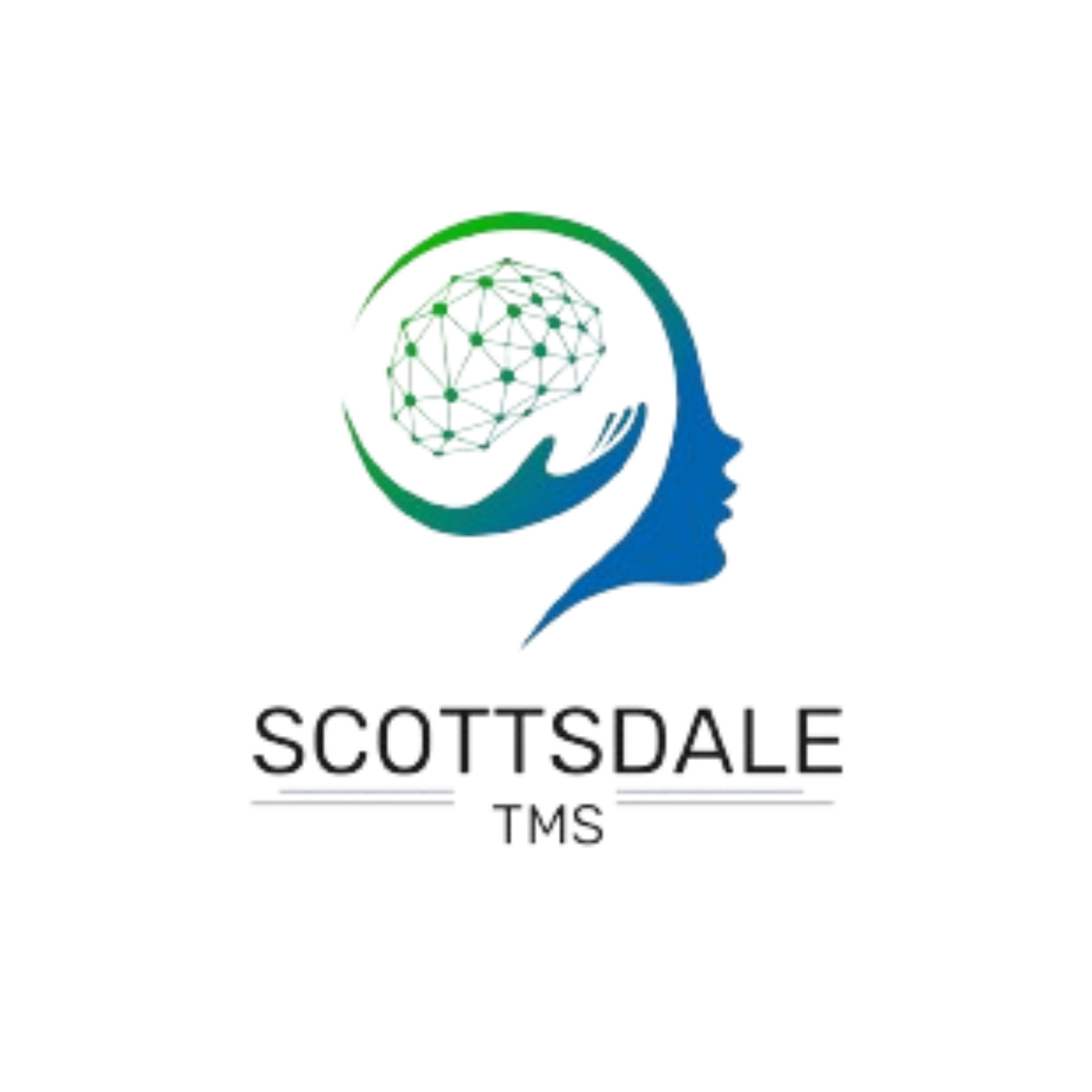If traditional treatments haven’t worked for you, Scottsdale TMS therapy offers a promising option. This FDA-approved, non-invasive approach is changing how we treat mental health conditions like depression and anxiety. It’s a safe and effective option for those who haven’t responded well to antidepressant medication or are seeking a drug-free solution.
In this article, we’ll break down how transcranial magnetic stimulation works, what to expect during a treatment session, and why so many people are turning to TMS mental health therapy in Scottsdale.
Questions Answered in This Article:
Our Alcohol Addiction Treatment Programs

Scottsdale Rehab
Luxury Personalized Rehab

Hart Rehab
Holistic Luxury Personalized Rehab

Scottsdale Detox
Luxury Medical Detox
What Is TMS Therapy?
Transcranial magnetic stimulation (TMS) is a non-invasive brain stimulation therapy. It uses magnetic pulses delivered through a magnetic coil placed on the scalp to activate the area of the brain involved in mood control. TMS is a clinically backed alternative treatment for depression and is also effective in treating anxiety symptoms.
This therapy is most commonly used for treating depression, especially for those with major depression disorder who haven’t found relief through standard mental health treatments like medication or talk therapy.
How Does TMS Work?
During a typical TMS treatment session, a trained technician places a magnetic coil on your scalp. The device sends short, focused magnetic pulses to the area of the brain involved in mood regulation. These pulses help activate neural pathways that may be underactive in people with major depression or anxiety.
TMS doesn’t require anesthesia, and patients can stay awake during the entire session. Each session lasts about 20 to 40 minutes, depending on the protocol your provider uses.
TMS for Depression: A Drug-Free Option
Many patients in Scottsdale seek TMS for depression when traditional approaches fail. Unlike medication, which can have widespread side effects, TMS targets a specific part of the brain without affecting the rest of the body. That’s why it’s considered a non-invasive depression treatment—one that’s both precise and safe.
Studies show that TMS success rates in individuals with treatment-resistant depression can be as high as 50-60%. This high success rate makes it a promising option for those who have not responded well to antidepressant medication. Many also experience long-term improvements even after the treatment course ends.
TMS for Anxiety: A New Frontier
While TMS has been widely recognized for treating depression, more people are now using TMS for anxiety as well. Research shows that stimulating the right brain regions can also reduce symptoms of generalized anxiety disorder
Although anxiety-related TMS protocols are still developing, many Scottsdale clinics now offer TMS as part of a comprehensive mental health treatment plan.
What to Expect from TMS Treatment in Scottsdale?
If you’re considering TMS treatment in Scottsdale, here’s what you can expect:
- Consultation: You’ll meet with a provider to review your symptoms and medical history.
- Mapping: The technician locates the exact area of the brain to target.
- Sessions: Most people undergo 5 sessions per week for 4 to 6 weeks.
- Follow-up: Progress is monitored throughout the process and adjustments are made as needed.
- Each session is painless, although some report mild discomfort at the site where the coil is placed. Side effects are usually minimal and may include light scalp irritation or a mild headache.
The Effectiveness of TMS: What the Research Says
The effectiveness of TMS continues to be supported by clinical research. Not only does it show high success rates in managing major depression, but it also has long-term benefits for many patients. Some may experience a full remission of symptoms, while others report significant improvement in their day-to-day lives.
While results can vary, TMS provides hope—especially for those who have tried multiple medications or therapies without success.
Benefits of Choosing TMS Mental Health Therapy
Choosing TMS offers several advantages:
- Non-invasive: No surgery or medication required.
- FDA approved: For treating major depression disorder.
- Few side effects: Unlike many antidepressant medications.
- No downtime: Patients can return to normal activities immediately after sessions.
- Targeted therapy: Focuses directly on mood-regulating brain regions.
These benefits make TMS an attractive option for those seeking a safe and effective way to improve their mental health without the complications of drug-based therapies.
Who Should Consider TMS Therapy?
TMS may be ideal for individuals who:
- Have major depression disorder or generalized anxiety disorder
- Didn’t respond to antidepressant medication or therapy
- Prefer non-invasive or drug-free treatments
- Seek alternative treatments for depression
- Experience difficult mental health conditions
It’s always best to consult with a licensed provider to determine if TMS is right for your needs and health history.
TMS Therapy: More Than Just Depression and Anxiety
While TMS is best known for treating major depression and generalized anxiety disorder, its potential goes far beyond. Researchers and clinicians are now exploring its benefits for other mental health and neurological conditions, including:
- Post-traumatic stress disorder (PTSD)
- Obsessive-compulsive disorder (OCD)
- Chronic pain
- Bipolar depression
- Substance use and addiction-related cravings
TMS is not a one-size-fits-all solution, but its expanding range of applications shows promise as a flexible, non-invasive treatment option. As always, it’s best to consult with a licensed provider to determine whether TMS fits your specific health goals.
Scottsdale TMS Therapy: A New Chapter for Mental Health
If you’re struggling with depression, anxiety, or both, and haven’t found success with medication, Scottsdale TMS therapy could be the breakthrough you’ve been looking for. This safe, FDA-approved treatment offers new hope with minimal side effects and impressive success rates.
With skilled professionals and growing accessibility to TMS treatment in Scottsdale, this could be the solution to unlock a healthier, more balanced future for your mental well-being. Whether you’re battling major depression or generalized anxiety disorder, TMS therapy provides an effective, non-invasive option to reclaim your life and improve your mental health.

